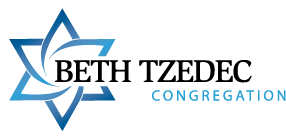The United Synagogue of Conservative Judaism represents and supports the synagogues of the Conservative/Masorti movement in North America. The organization works with lay leaders and Jewish professionals on the national, regional, and grassroots levels. Its goal is to teach, inspire and motivate Conservative Jews to live lives increasingly filled with Jewish learning, ethical behavior, spirituality and mitzvot.
On February 23, 1913, Dr. Solomon Schechter, then president of the Jewish Theological Seminary, brought together a group of 22 synagogues in the hope that, working together, they could sustain one another and further their common mission: the development and perpetuation of Conservative Judaism. Today, that handful of congregations has blossomed into a large, vibrant synagogue organization that is made up of about 700 affiliated congregations across North America. Dr. Schechter considered the United Synagogue to be “the greatest bequest that I shall leave to American Israel.”
Guided by a commitment to both modernity and tradition, The United Synagogue of Conservative Judaism (until 1992, the United Synagogue of America) has sought to provide its affiliated congregations with help in fulfilling their religious and educational responsibilities. Based on the premise that these congregations are united in partnership — and therefore that no Conservative synagogue must “go it alone” — the United Synagogue has worked to strengthen and enhance the ability of affiliated synagogues to enrich the Jewish lives of their members.
In 1952, the United Synagogue took an important step to raise standards of conduct for synagogues by adopting a “Guide to Standards for Congregational Life.” In 1959, the USCJ issued a “Statement of Standards for Synagogue Practice,” which became binding upon affiliated congregations. Although these standards have been regularly revised to reflect current concerns, the revisions have been designed in such a way as to preserve both the integrity and application of Jewish values in synagogue life.
The Department of Education, oldest of all the departments within the United Synagogue, was formed in the teen years of this century and today boasts a substantial and creative program of supervision, standards, textbooks, curricula and more. While providing quality resources for the schools of affiliated congregations, the department has also — since the late 1950s — overseen the development of the Solomon Schechter Day School system, with some 70 such schools throughout the continent.
A second department which had its origins in the earliest years is the Department of Youth Activities, reflecting the United Synagogue’s total commitment to Jewish education, even beyond the classroom. The young people of the Movement are served by United Synagogue Youth, for teenagers, and Kadima, for pre-teens. The Youth Department also offers numerous Israel experiences, such as USY Israel Pilgrimage, Nativ and USY High. Together, these programs have equipped hundreds of thousands of young people to live as Jews with a strong and lasting attachment to the Jewish people and the Land of Israel, and with a deep sense of loyalty to the synagogue as the central institution of Jewish life.
The United Synagogue has been committed to the cause of Israel and world Jewry from its very inception. As far back as 1926, it was instrumental in creating the Yeshrun Synagogue in Jerusalem as a gift to the Jews of the Holy Land. To bind together like-minded synagogues all over the world, the United Synagogue organized the World Council of Synagogues in 1957. In 1972, the United Synagogue created the Center for Conservative Judaism in Jerusalem. For almost a quarter of a century, the Center (now the Shirley and Jacob Fuchsberg Center) has served as the address for many educational activities both for Jerusalemites and for visitors from abroad. In addition, the Center serves as the Israel head- quarters for all USY Israel activities. The United Synagogue Yeshiva, housed at the Center, provides a place for young men and women to engage in intensive Jewish study.
In recent years, the United Synagogue has been actively engaged in identifying and training leaders in its member synagogues and in reaching out to small and/or isolated congregations. Through programs such as the SULAM Challenge, which teaches leadership skills and develops synagogue presidents who truly understand the “Jewish” dimension of their new roles; and IMUN, which assists those congregations seeking greater lay involvement in the religious life of the synagogue, the USCJ has worked to strengthen the laity in an effort to enhance our member congregations.
Throughout its history, the United Synagogue has expanded its horizons to meet the needs of the times. It was active internationally through protests and resolutions during the darkness of the Holocaust; it spoke out vigorously on behalf of freedom for Soviet and Syrian Jewry; and it continues to become involved in pressing issues that relate to world Jewry. As an activist Jewish organization, the United Synagogue has established a tradition of reaching out to those in need, and new commissions are constantly being formed to address issues such as teen suicide and substance abuse, accessibility for the handicapped and environmental responsibility.
The United Synagogue was created to help affiliated congregations function effectively and to enrich the spiritual lives of Conservative Jews. Through its awareness of communal responsibility, adherence to religious observance and strong sense of commitment, the United Synagogue continues to move into the future as a dynamic force.

